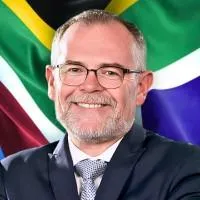Turning waste into wealth: SA's renewable energy and waste reforms promise jobs

Dr Dion George, Minister of Forestry, Fisheries and the Environment.
Image: Supplied
The Minister of Forestry, Fisheries and the Environment has said that the nation’s robust waste and renewable energy reforms are paving the way for sustainable job creation and significant investment influx.
In an address underscoring the transformative potential of environmental policies, Dr Dion George's statement reflects a growing recognition that what is often dismissed as waste can be harnessed as a valuable resource.
“What many people call waste, we see as wealth. By managing waste and energy wisely, we can create thousands of jobs, attract billions in investment, and build a resilient economy,” George said.
In the fiscal year 2024/25, the department processed 324 of the 326 environmental impact assessments mandated by law, achieving a 99% efficiency rating. Crucially, the prioritisation of energy projects, implemented as a direct response to the pressing national power crisis, saw resolutions reached within an average of just 57 days.
Innovative measures such as the department’s Solar and Battery Energy Storage System Exclusion Norms have enabled an expedited rollout of renewable projects in less sensitive areas, thereby injecting additional power into the national grid, while simultaneously generating employment opportunities in construction and ongoing maintenance.
Equally noteworthy are the strides made in waste management. The Extended Producer Responsibility (EPR) regulations have been instrumental since their introduction in 2022, facilitating the creation of over 24 000 jobs and extending support to 47 000 waste pickers across the country. Initiatives like the Recycling Enterprise Support Programme and targeted e-waste projects are currently nurturing new enterprises within communities, notably in places such as Bushbuckridge.
The Waste Management Bureau is actively addressing persistent market failures through a comprehensive strategy focused on enhancing pricing models, improving logistics, and enforcing regulations. Among the ambitious projects is the development of a blended-finance Waste Infrastructure Fund aimed at supporting innovative waste-to-value ventures that convert what was once seen as refuse into profit.
George emphasised the paradigm shift within the country’s approach to both waste and energy: “Waste and renewable energy are no longer burdens. They are the raw materials of a new economy. Every recycling enterprise and every solar farm is a step towards inclusive prosperity.”
Furthermore, he highlighted that ongoing collaborations with the Treasury and the World Bank are expected to mobilise more than R100 billion allocated to enhance water, energy, sanitation, and waste infrastructure projects. Under the guidance of the DFFE, these investments are central to embedding environmental stewardship into a sustainable growth model for South Africa.
“When we convert waste into value and speed up renewable projects, we are proving that sustainability creates wealth,” said George. “This is how we turn today’s problems into tomorrow’s opportunities.”